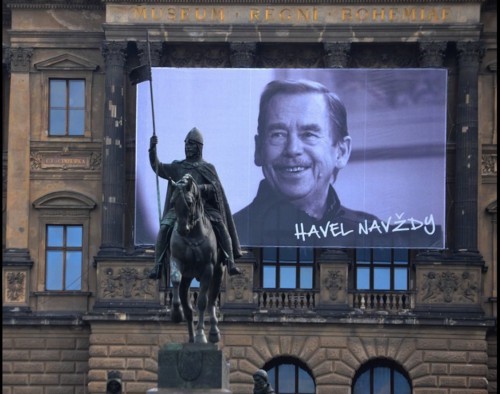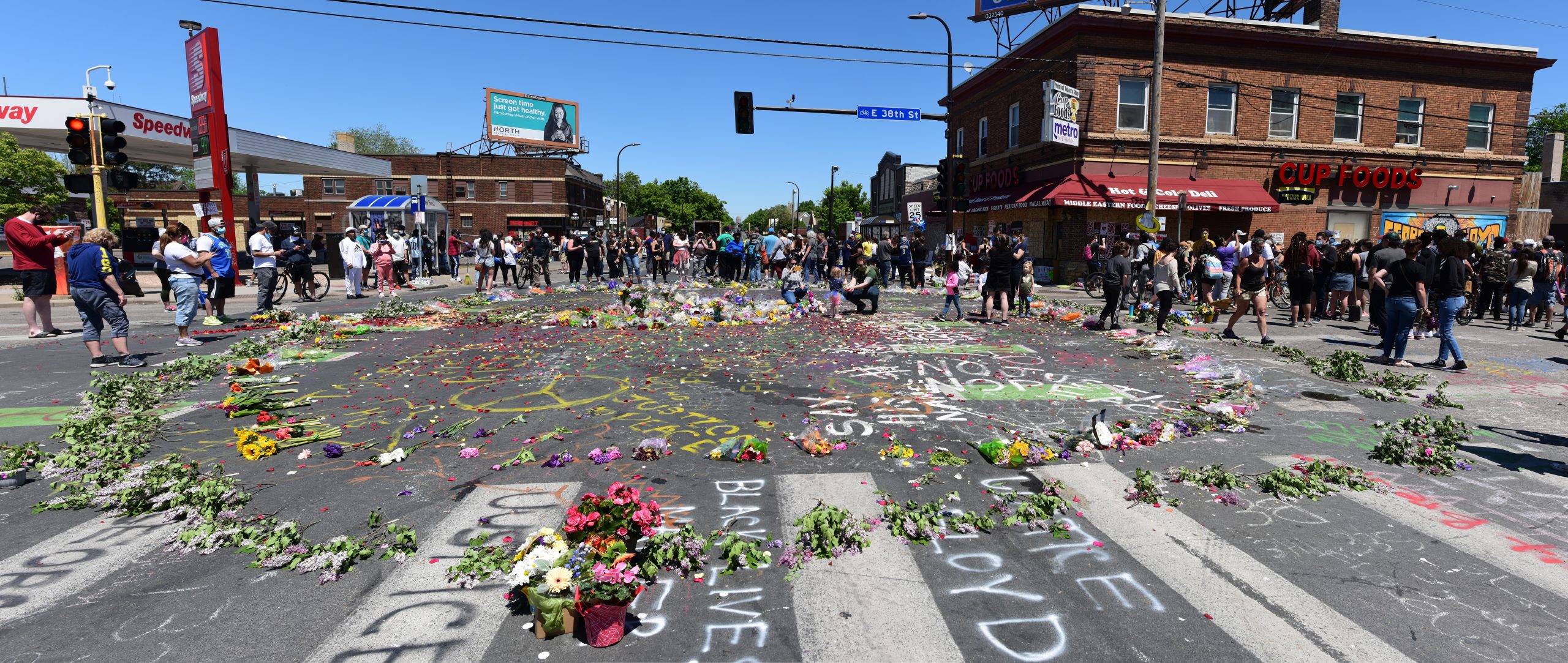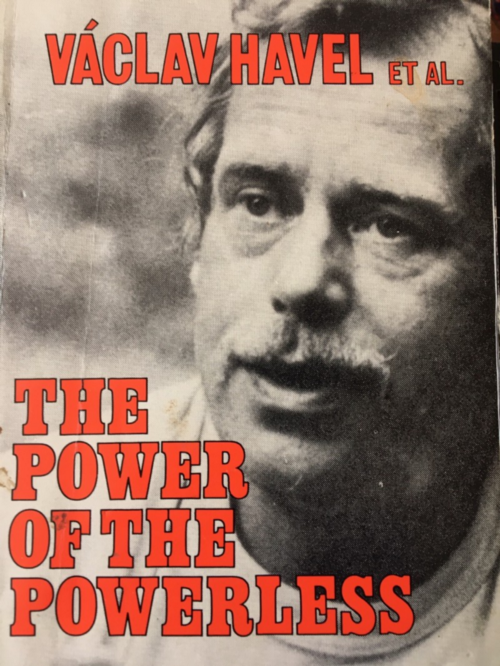Living within the truth in the age of coronavirus: America’s security on the line
Carol Dumaine is a former US Intelligence Community analyst and manager who, in recent years, has been busy teaching, writing, and giving public presentations on themes related to climate change and global security. Currently Dumaine is working on a series of essays called “Living within the Truth in the Age of Coronavirus.” Her most recent project involved a multiple scenarios analysis, “The COVID-19 Crisis: What’s at Stake?,” coauthored with Dr. Stanley Feder, which considers the pandemic’s implications for alternative futures of the United States. The report can be found at www.20-20foresight.org.
In June 2020, a young US Army soldier, an African American, uploaded a video diary onto the social media site, TikTok. A veteran of three combat deployments, he looked into the camera and said, “I can honestly say I am more terrified of being home right now.” He added, “This is a reality that a lot of people in America are facing today.” He felt safer, he said, when he knew who his enemies were, which was not possible in America. He admitted he was at a loss for words. His meaning, though, was clear: why risk your life defending the United States and its purported values when you can be killed at any time by police officers in your own country?

Image of Vaclav Havel with words “Havel Forever” in front of the Naitonal Museum Building in Prague. Vaclav Havel was the first president of the Czech Republic and a writer, playwright and dissident who helped bring about the demise of the Communist Czechoslovakian government. Today the Czech Republic ranks as the eleventh safest and most peaceful country in the world according to the Global Peace Index.
Anonymous online critics accused the soldier of expressing “political” views, but their responses obscure the meaning of his act. His act is an example of “living within the truth,” as Vaclav Havel, the late Czech president, former playwright, and famous dissident described it in his 1978 essay The Power of the Powerless. Pointing out such paradoxes is the truest loyalty to one’s country. The soldier’s cri de coeur had nothing to do with US national security as traditionally construed, and therein lies the problem. It is dismissed by critics as “political” but has everything to do with truth about security for Americans.
National security in the United States mainly is associated with military and defense capabilities, not with social injustices, economic inequality, militarized police forces, and hate crimes. Foreign adversarial threats make up traditional national security priorities, but modern threats such as the novel coronavirus and police brutality expose the tears in our social and economic fabric, albeit without prompting much assessment of how they affect our nation’s comprehensive security posture. In addition, the current US administration continues to undermine the rule of law in the United States, including its unprecedented levels of political interference in our judicial system, making Havel’s essay all the more relevant to our times.
The United States will be unable to move forward, regain self-confidence, and restore its reputation for excellence in science, technology, university education, the arts, and humanities, let alone reengage effectively in essential international security alliances such as NATO or deal competently with climate change without confronting the deficits in its democracy and governance. This would be true even if these deficits were not interdependent with issues of national security as they are in reality. The onus to confront these ills has always been ours, but for many of us, looking away has been too easy. Social media has helped us all to open our eyes and to become more aware of the realities that too many Americans have dealt with for far too long. Witness videos showing police brutality and hate crimes appear on social media sites, testifying to America’s pathologies before a global audience and making us ask, finally, what is happening beyond the reach of cameras? What is happening beyond the reach of our imaginations?

Photo by Fibonnaci Blue, hosted on Wikimedia Commons
Intersection where George Floyd was killed by Minneapolis police on May 25, 2020.
As COVID-19 cases and deaths skyrocket in the United States and evidence of hate crimes pile up, it’s easy to miss how the grief, fear, and agony on our streets today affect the future of US national security. National security in the United States is something traditionally left to professionals who tend to look abroad for threats, as we all should want them to continue to do. As Americans, no one should want any aspect of the country’s national security apparatus turned on its own citizens, as current US military leadership came close to doing during the chaotic events in Lafayette Park opposite the White House on June 1.
Recent events remind us that being true to our values as Americans requires reframing what we mean by security to include public safety and adherence to the rule of law at home. Although this reframing would span issues as varied as demilitarizing police forces, ensuring equal justice under the law, and dealing with climate, food, water, and health security as well as racial and social divisions in America, it does not mean forming a still bigger “national security” community. On the contrary, parallel to the nationwide movement to reimagine policing in the wake of George Floyd’s murder, it may well mean a smaller one. A “living-within-the-truth” reappraisal of US national security would leave discussion open to every possibility.
Like Floyd’s murder, the age of coronavirus has spotlighted the inadequacy of our inherited concepts of “national security.” Upholding the status quo today undermines Americans’ security at least as much as any foreign adversarial threat, and those threats are exacerbated by our security’s continued subversion. As we’ve seen in social-media-based disinformation campaigns intended to influence the outcome of the 2016 presidential election, the United States’ adversaries use asymmetric and hybrid warfare to exploit growing divides and stoke greater polarization in America. They understand that they can use social media to accentuate and inflame racial and social divisions in America. An America focused inward on social instability is an America less able to threaten these countries’ strategic goals abroad. Such hybrid warfare, moreover, increasingly blurs distinctions between domestic and foreign security issues, a slippery slope the United States has rapidly descended since 9/11.
These realities make fresh thinking and nonpartisan public discourse on these issues urgently necessary. In the age of coronavirus, climate change impacts, disinformation, systemic racism, public corruption, widening inequality, and eroding rule of law, we must concede that existential questions of our nation’s security and its necessary new directions cannot be left exclusively or even mainly to national security experts and policymakers. To whom, then, does this responsibility fall?
Future US security requires Americans to look through a wider lens today and to ask how secure they feel on their own soil. Other questions we need to ask include the following: do some Americans have a right to expect more security than others? Whose security do we expect our national security services to protect and defend? Who decides what “security” even is in an age of contagions and climate disasters? To what ends will our 2020 defense budget of $738 billion be spent, and how do we justify it when, at home, more than 160,000 of our own citizens have died since March from the effects of COVID-19? How do we justify such a budget when our frontline healthcare workers and first responders themselves have been left defenselessin the face of COVID-19, exposed to the deadly virus without adequate personal protective equipment, including N95 masks that not long ago cost little more than a dollar each? What does “security” mean when many of our elected public officials feel free to manipulate or conceal data on a viral scourge that already has killed tens of thousands of Americans in barely twelve weeks’ time?
Today the task of reimagining US national security falls to a nation divided and in disarray. We lack competent leadership at the national level and face economic calamity on a scale not seen since the Great Depression. Our Congress is more fractious than ever. Failing to make the needed changes, however, will leave the United States unable to safeguard the future of its citizens.
Forsaking the task of reimagining US national security will perpetuate civic irresponsibility, systemic blindness, misappropriation of taxpayer dollars, and a lack of preparedness for future crises. It furthermore threatens over time to extinguish a vibrant civil society essential to democracy. The news-as-a-business media ecosystem muddles national comprehension and agreement on what is factual. This confusion leads otherwise patriotic Americans to live dishonestly, albeit unwittingly, like people driving blindfolded over a cliff. Havel would call this “living within a lie,” and if he were alive today, he would warn us that it is the road to authoritarianism.
In The Power of the Powerless, Havel, writing in the late 1970s in Communist Czechoslovakia, tells a parable of a greengrocer who independently decides to risk everything by breaking with his peers’ conformity to the expected displays of loyalty to a ruthless, soulless Communist regime. His rebellious act is one of omission rather than commission: one morning he intentionally neglects to place in the window of his fruit and vegetable shop the sign with its obligatory slogan, “Workers of the World Unite.” To understand his courage, one must know that all the shopkeepers put this slogan in their windows daily. They didn’t know what the slogan meant, but they knew that not displaying the signs would invite trouble and accusations of disloyalty from the regime. At the time in Czechoslovakia, to step out of line in this way was to put oneself and one’s family at risk of heightened scrutiny, to face arrest over trumped up charges, or to have a child refused admission to a desirable school.

Book cover, The Power of the Powerless, Palach Press, 1985.
By putting out their signs each day, the fruit and vegetable sellers were signaling obedience to a system that relied on such unquestioning compliance from every citizen. To varying degrees, ideology of all kinds, including in America, requires such conformity.
The greengrocer who one day did not put out the obligatory sign atop his vegetable displays was a crack in the system of conformity and obedience to an ideology. His act of defiance encouraged others to do the same, leading to more cracks in a brittle system. The essay inspired the real-world, mostly peaceful Velvet Revolution, which led to the creation of the democratic Czech Republic.
It will take a nation of courageous “greengrocers” to call out the truths we all need to acknowledge in America today and create a new path forward. The need has never been more urgent. Havel concludes his essay with the following words, which, although written more than forty years ago, seem to speak to us today in a situation that is at once different and similar:
“…the real question is whether a ‘brighter future’ is really always so distant. What if, on the contrary, it has been here for a long time already, and only our own blindness and weakness has prevented us from seeing it around us and within us, and kept us from developing it.”
Seeing around us and within us
Aiming for a “brighter future” means seeing, as Havel wrote, around us and within us. Around us, the United States today faces national security and public safety-related challenges that are interconnected in a global web of ticking time bombs. These include widening economic and civil rights inequalities, as well as climate change and authoritarian challenges to liberal democracy around the world. Like the Challenger space shuttle engineers whose warnings about faulty O-rings went unheeded before the doomed spaceship exploded in 1986, killing all aboard, the United States’ national security “O-rings” have been exposed as faulty. In response to those who have said it is too late to avoid the headlong decline of the United States, we can look to the foundational documents like The Declaration of Independence for the necessary lift we need under our wings to take flight again. This includes its insistence “that all men are created equal [and] endowed by their Creator with certain unalienable Rights.” The unfulfilled aspiration must be made reality in order for us to live within the truth.
Many truths about the United States are on display for an increasingly horrified world. Living within the truth means acknowledging our daily reality and making fact- and science-based decisions—something the current US administration has resisted from its first days in office. Living within the truth, as Havel wrote, means “an attempt to regain control over one’s own sense of responsibility.” He continues:
“In other words, it is clearly a moral act, not only because one must pay so dearly for it, but principally because it is not self-serving: the risk may bring rewards in the form of a general amelioration in the situation, or it may not…it is an all-or-nothing gamble, and it is difficult to imagine a reasonable person embarking on such a course merely because he or she reckons that sacrifice today will bring rewards tomorrow, be it only in the form of general gratitude.”
US national security requires the nation to be able to effectively address a wide array of domestic and global security challenges such as pandemics, widening inequality, and climate change. We should not consign responsibility for them to a military-centric national security establishment where most information is treated as classified and not for public knowledge. Today we need exactly the opposite approach: one that involves embracing public and global security in ways that are transparent, trust-based, and grounded in the reality of shared facts and shared responsibility. This approach will emphasize citizen engagement on matters most affecting them and their futures. In this new concept of security, citizens must work to live within the truth—exercising personal responsibility—and insist on transparency and accountability from a government that works for them.
Like a wild kite loose in stormy weather, the idea of America is tattered and seemingly on the verge of nosediving into the ground. This heartens our nation’s adversaries. But, even so, remedying the situation is not primarily the job of our national security establishment. It will take a nation “living within the truth” to reimagine and create a new nation that respects the “certain unalienable Rights” of all its people, including among these “Life, Liberty, and the pursuit of Happiness.” It will take risks from all of us to “live within the truth” like the young Army staff sergeant in the TikTok video.

The GeoTech Center champions positive paths forward that societies can pursue to ensure new technologies and data empower people, prosperity, and peace.
Image: Photo by Fibonnaci Blue, hosted on Wikimedia Commons